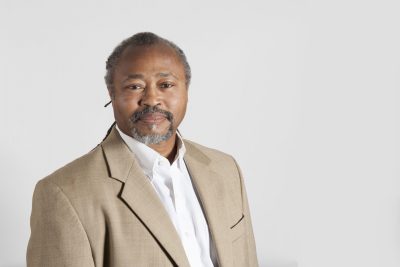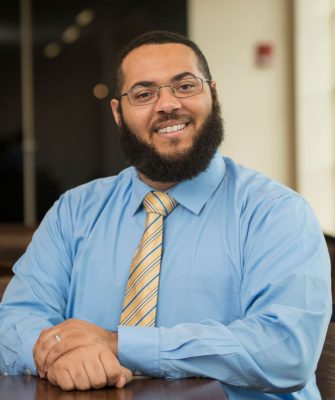Communications » Provost’s Messages and Presentations
Dear UConn Faculty, Staff, and Graduate Students:
As we prepared for this fall semester, instructional needs and changes inevitably dominated our discussions. Faculty, graduate assistants and post-docs put in countless hours to prepare their course materials and plans for engaging with students. Alongside them, but often out of the spotlight, were the herculean efforts of countless staff that enabled our fall planning and implementation.
Staff are the unsung heroes of our COVID operations. They managed classroom rearrangements, created and placed directional signage, enhanced cleaning, processed modality changes and course registration, provided HR and benefits support, maintained and recalibrated lab and Library operations, distributed internal and external community communications, provided rapid IT support, advised and supported thousands of students, modified housing and dining operations, and coordinated COVID testing for all in our community. As long as that list is, it is incomplete. All the while, staff have also maintained regular operations.
Our work and home lives have changed drastically in the past six months, but as our staff support us all we want to be sure we support each other, wherever you look at the University – from our peers and colleagues to University leadership.
To support staff, the Provost’s Office and Human Resources are partnering to expand the Admin Forum. This longstanding, popular program provides opportunity for staff colleagues to network, hear directly from university leadership, and learn and grow professionally. The Admin Forum attracts staff attendees from across the university. Our new partnership broadens our team and expands access to all staff at our Storrs and regional campuses.
We invite staff to save the date for the first forum of the 2020-21 academic year on Thursday, Oct. 22, from 10 to 11:30 a.m. The forum will include a brief town hall with university leaders, followed by breakout sessions for staff to meet and network in an informal, virtual setting. An invitation with further details will be sent to staff next week.
A further measure to support staff is the recently announced hire of Michael Bradford as Vice Provost for Faculty, Staff, and Student Development. Michael will oversee actualizing the potential of the individuals we serve at UConn. In this role, Michael and Provost’s Office staff will be close partners with Human Resources on opportunities to support staff across the university.
We are deeply grateful to UConn staff. Our university’s success is not possible without your talents, your professionalism, and your dedication to your work.
Sincerely,
Carl and Chris
Carl Lejuez
Provost and Executive Vice President for Academic Affairs
Christopher Delello
Chief Human Resources Officer
Updates for the Academic Community
U.S. Anti-Black Racism course open to faculty, staff, and graduate students
The university’s U.S. Anti-Black Racism course is available at no cost to UConn faculty, staff, and graduate students. The course has nine modules and is interdisciplinary, taught by faculty across the university. Each week will require about five hours of student learning. Registration information is available on this page, provost.uconn.edu/us-anti-black-racism-course.
Textbook orders for spring semester
Please consider placing your orders for spring semester courses as soon as possible through Barnes & Noble. We need to allow extra time for materials to arrive to the bookstore and to students, due to COVID delays and barriers. Students experienced delays in receiving materials in the fall semester due to similar delays and obstacles, including the start-of-semester quarantine.
Student Health and Wellness-Mental Health Services
If you have students who want to see a mental health professional, SHAW-Mental Health offers in-person, online or phone appointments for any enrolled students at the university. The office has moved primarily to same day consultation appointments for students reaching out for support to help assess needs. SHAW-Mental Health will continue to be available for crisis assessment 24/7 through the end of the semester. To schedule an appointment, students should call the office at 860-486-4705. For more information, please visit counseling.uconn.edu.
Upgraded faculty consulting form
We announced last week that an upgraded faculty consulting system is now available for UConn and UConn Health faculty. The link to submit requests in the new system can be found at our website, consulting.uconn.edu.
Senior citizen course auditing
For the Fall 2020 semester, Senior Citizen Auditors may enroll in undergraduate online courses or courses with one or more online components. The Senior Citizen Audit does not apply to laboratory or studio courses. Auditors must also seek instructor consent to enroll in any courses. More information is available at nondegree.uconn.edu/senior-citizen-audit.
Health insurance enrollment deadline
The Health Insurance Open Enrollment for State of Connecticut employees is underway and will end on Wednesday, Sept. 30, 2020. Any changes made during open enrollment will be effective Oct. 1, 2020. Additional information, including how to submit a change and the move to Anthem for all employees, is available on the Human Resources website.
Academic FAQs
We continue to update our FAQs for Academic Scenarios, including detail on our emerging plans for the spring semester. The FAQs are available at provost.uconn.edu/covid-19-fall-planning/covid-19-faqs-for-instruction.
Commencement celebration for fall
President Katsouleas shared an update with students that UConn will not be able to hold an in-person commencement celebration this fall. Connecticut’s current guidelines on large gatherings prohibit any ceremony on the scale of commencement. More information at commencement.uconn.edu/october-ceremony.
Publication date: 09/24/2020

